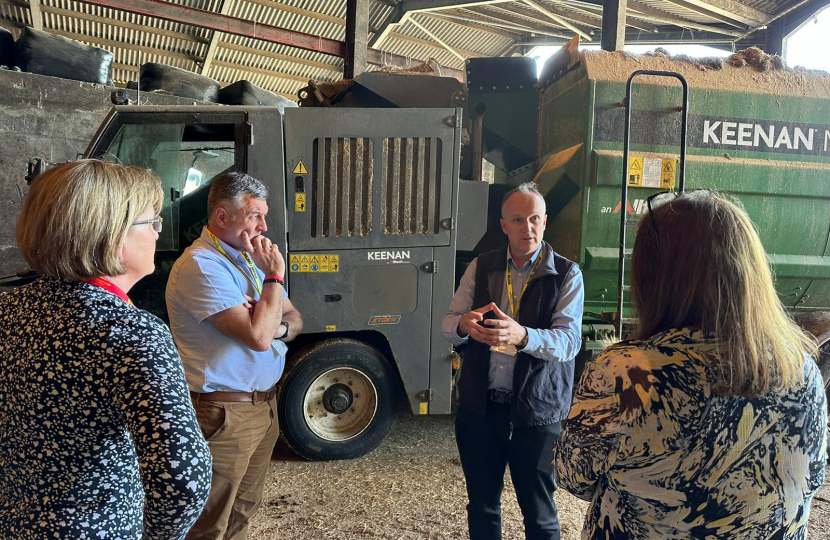
From food security, agricultural robotics and engineering to conservation and environmental advice, Dr Neil Hudson MP is supporting an Inquiry into the wide range of career opportunities which exist in land-based sectors including and beyond farm-based jobs.
The new inquiry from the Environment, Food and Rural Affairs Committee, on which Dr Hudson sits, will explore the relationship between education and the land-based industries and the effectiveness of current primary, secondary, further and higher education in embedding awareness and equipping students with the skills and knowledge necessary.
MPs will delve into existing and potential initiatives aimed at promoting the career opportunities in land-based sectors and will consider any examples of best practice for this, in the UK and abroad.
The EFRA Committee will also question what more can be done to facilitate new entrants into land-based industries, including people from non-rural backgrounds and those considering a career change. It will additionally consider the accessibility and availability of land-based courses and how equipped institutions are to teach them.
A vet by profession, Dr Hudson is a passionate advocate for land-based education and has worked hard in Parliament to keep political focus on the policy area.
- Watch Dr Hudson’s recent parliamentary intervention on the need to prioritise land-based courses here.
- Click here to read more about Dr Hudson’s recent visit to Myerscough College’s land-based education centre.
- Read more about Dr Hudson’s discussion with the UK’s rising agricultural stars in Westminster, here.
Dr Neil Hudson MP said:
“Land-based sectors are pivotal to life in our country. From the food we eat to the air we breathe, these industries are woven into the very fabric of society. That is why I am proud to stand up for land-based education and careers with this inquiry which will bolster the way Government policy works for the hundreds of thousands employed in such a fulfilling and enriching sector.
“ I have seen the value of land-based education on individuals and their lives. Therefore, we will be boosting awareness, accessibility, and efficacy for land-based courses across the entire UK.”
Committee Chair, Sir Robert Goodwill, added:
“The UK’s agricultural and horticultural sectors offer a wide range of rewarding careers and employ hundreds of thousands of people. There are many jobs available in land-based industries and it is vital that there are fit for purpose career pathways to reach them.
“Today we launch a new inquiry into the different educational routes people can take to enter a career in land-based sectors. This inquiry will consider whether education and agricultural policies are working effectively to promote the sectors and facilitate people choosing this field of work.”
Terms of reference
The Committee invites written submissions through the inquiry website addressing any or all of the issues raised in the following terms of reference, by 23:55 on Friday 3 November.
1. How can the understanding and awareness of career opportunities in land-based sectors be improved among children and young adults?
2. How effective is the education system at supporting young people seeking careers in land-based sectors? For example, are routes such as T levels and apprenticeships fit for purpose?
3. What more can be done to facilitate new entrants, including those from non-rural backgrounds, into land-based sectors, including those considering a career change?
4. Are colleges offering land-based education accessible and available to those seeking to enrol in courses? Are there gaps in coverage and if so, how can these be addressed?
5. Do colleges offering land-based education have the appropriate facilities and funding to enable effective teaching (e.g. access to farmland)? What more can be done to make this teaching more effective?
6. What role should schools, colleges, universities, and local and central government play in promoting and supporting careers in land-based sectors?
7. How can more children, young people and adults be provided with opportunities to see the career opportunities in land-based sectors first-hand? Are there examples of initiatives doing this successfully (for example, through initiatives such as Open Farm Sunday)?
8. Are there domestic or international examples of best practice in successfully promoting educational opportunities and careers in land-based sectors?




